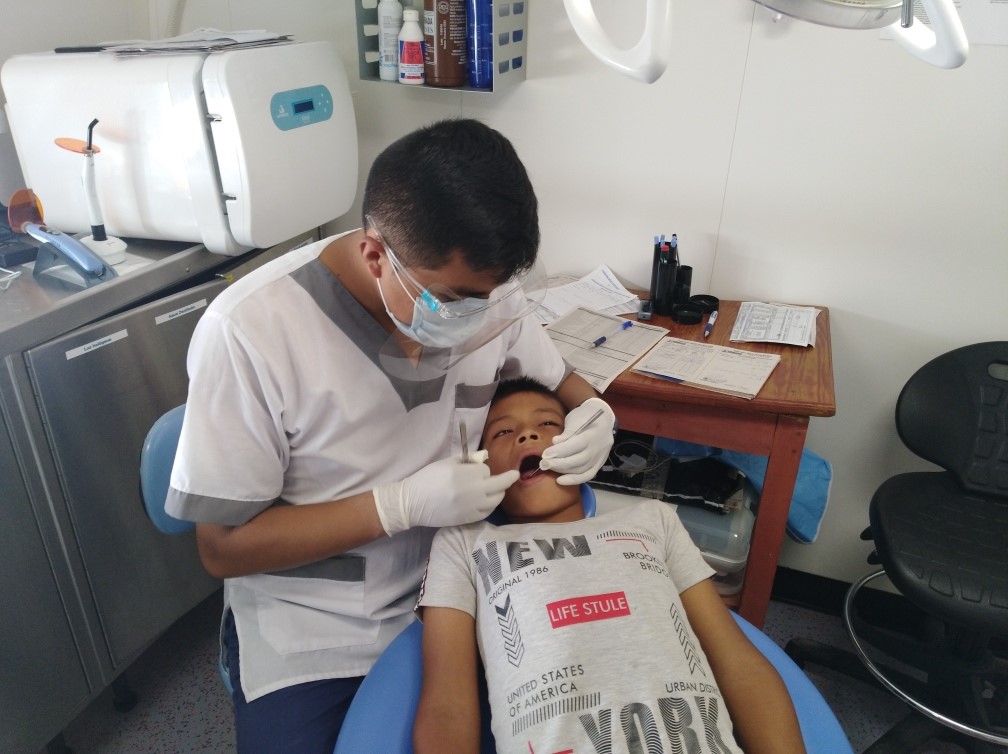Indigenous Group’s Support for Amazon Hope Medical Programme
The MV Forth Hope has recently returned from another expedition, this time to communities along the Puinahua river.
Dr Ronald Ramirez, the programme’s Head of Medical Services, has sent in a report where he highlights some of the medical needs which were most in demand during the expedition, as well as details of an important collaboration with a local indigenous groups and health facilities.
“Most of the communities in the Puinahua river basin are recognized as indigenous communities. Each of these communities has a leader and among them they have organized to form an Indigenous Federation, which is led by Mr. James Pérez.
The Federation of Indigenous People is currently participating in discussions with the Regional Government and an oil company that is working in this area. The dialogue is to obtain greater benefits for the communities in the areas of health, education, electricity.
As part of our recent trip to this area, it was important for me to meet with Mr Pérez and share with him about the Amazon Hope Programme and the work we do. Mr Pérez told me that he already knew of the work of the programme and that in previous years he himself was a volunteer nursing technician at the Huacrachiro health post (Puinahua river), his native community, and that he has good knowledge of the health problems for the people living in the region. He was very supportive of the work that the programme is doing in the region with the communities and will seek to support through the Federation's links with government and corporate contacts.
The recent expedition also saw us working alongside health workers from the Bretaña Health Centre, which is located in the capital of the Puinahua district. The Centre’s newly appointed manager is Dr Henry Cora, who only took office two months ago and is very excited to continue working in coordination with the Amazon Hope Programme. The Health Centre has professional staff hired in response to the current COVID-19 challenges and also through the Directorate of Indigenous Populations of the Regional Ministry of Health. Through this support, Dr Cora has offered to assemble a complete team to accompany us on our next expedition in November and seek the provision from the regional health authorities for medicines to be used in the treatments of the patients.”
During the last trip to the Puinahua basin, the following health needs were found in the communities, many exacerbated by the impact of COVID-19-related travel and work restrictions which limited health care service availability, including access to medication:
• High demand for dental care, both for the recuperative and preventive.
• Increased number of women who became pregnant when unable to stop using contraceptive medicine due to supplies not being available and who now require prenatal care.
• Increased number of children who require vaccination in line with the national vaccination schedule. The need is even greater due to a diphtheria outbreak that is taking place in Peru and which highlights the low vaccination coverage that has worsened during the pandemic.
• Greater number of children requiring growth and development control and iron supplements.
• 100% of patients with diabetes found with glucose levels higher than 400 mg/dl, some of them had values so high that the glucometer only indicated HIGH, so we had to proceed to hydrate them and restart the treatment immediately.
• 90% of patients suffering from hypertension were without medication treatment, with blood pressure values higher than 180.
• Health Centres and health post reported a scarcity of medicines since they were not supplied regularly during the pandemic.”
Further updates on the work will be shared after the next upcoming trip, which will be the last expedition for 2020. To help with the ongoing delivery of these health services in 2021, we would be grateful if you would consider supporting our crowdfunding campaign - www.crowdfunder.co.uk/help-support-amazon-communities-affected-by-covid
